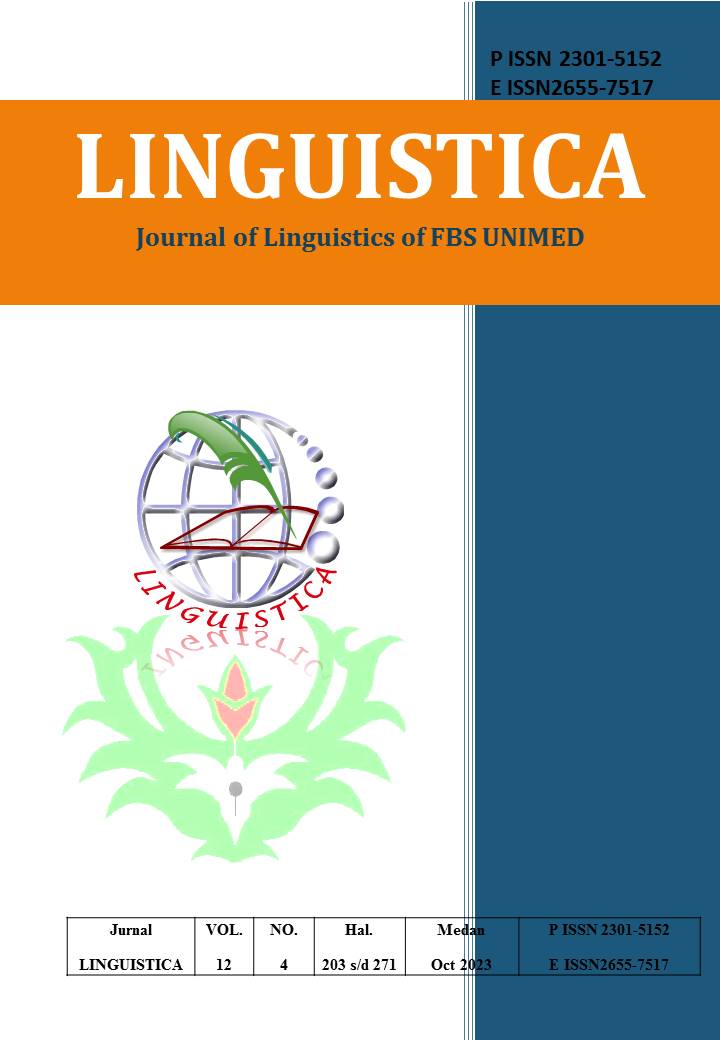THE ANALYSIS OF LEXICAL FEATURES IN THE JAKARTA POST™S ADVERTISEMENT
DOI:
https://doi.org/10.24114/jalu.v12i4.52486Abstract
The objective of this study is to find out the most dominant linguistic features of English advertising text in The Jakarta Post in lexical level. This study is qualitative in nature in the form of content analysis. The subject of the study was 110 advertising texts from The Jakarta Post newspaper collected from the edition of November 2015, February, March, April and May 2016. The advertisements were chosen purposively. Only commercial advertisements were analyzed in this study. The instrument used to collect the data was document review that was done through document analysis method. The collected data were analyzed using qualitative data analysis: data reduction, data display and conclusion drawing. The results of the analysis show that verb (76 times) is the most dominant features in terms of lexical. The verb get and enjoy appear 8 times each. The primary reason for having the verb get, as the style of advertising is its readability since it is a familiar and simple colloquial vocabulary. In another side, enjoy is also popular verb due to its relation to the feeling of the customer.Downloads
Published
2023-10-31
Issue
Section
Articles
License
Copyright (c) 2023 JULIANNIASA JULIANNIASA, NURLAYLI YANTI

This work is licensed under a Creative Commons Attribution-ShareAlike 4.0 International License.
Authors who publish with this journal agree to the following terms:
- Authors retain copyright and grant the journal the right of first publication with the work simultaneously licensed under a Creative Commons Attribution License that allows others to share the work with an acknowledgment of the work's authorship and initial publication in this journal.
- Authors are able to enter into separate, additional contractual arrangements for the non-exclusive distribution of the journal's published version of the work (e.g., post it to an institutional repository or publish it in a book), with an acknowledgment of its initial publication in this journal.
- Authors are permitted and encouraged to post their work online (e.g., in institutional repositories or on their website) prior to and during the submission process, as it can lead to productive exchanges, as well as earlier and greater citation of published work (See The Effect of Open Access).
- This work is licensed under a Creative Commons Attribution-ShareAlike 4.0 International License.

